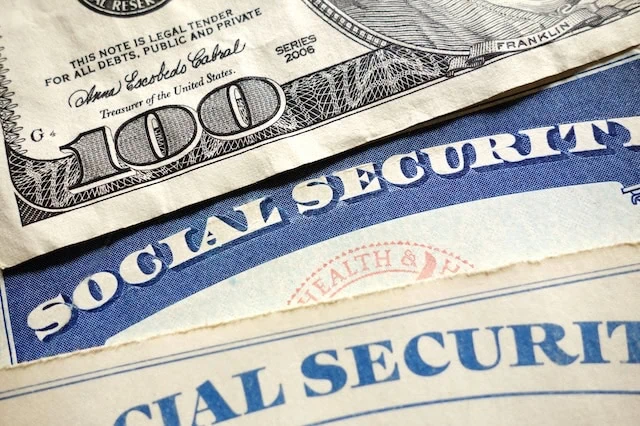Social Security retirement benefits are designed to replace part of your income during retirement. But what happens to those benefits if you aren’t fully retired?
Perhaps you’ve decided to ease into retirement by cutting down substantially on your hours, but you’re still working. Or perhaps you did fully retire, but now you want to start a side hustle to earn a little extra cash. However it happens, you’ll need to know: Can you still receive Social Security benefits if you’re working?
Read on as we discuss how working affects your Social Security retirement payments, as it pertains to both your own retirement benefit and your spousal benefit.
Featured Financial Products
Can I Work and Still Get Social Security?

The short answer? Yes. You can still receive your Social Security retirement benefit while in the workforce.
Working longer might even increase your benefit amount over the long term. Every year, the Social Security Administration reviews the records of beneficiaries who had income the previous year. If that year is one of your highest-earning years, your benefit will be recalculated to a higher amount. The new, higher amount is retroactive to January of the year you earned that money.
However, if you earn too much while collecting Social Security, and you’re below a certain age, some of your earnings will be temporarily deducted from your benefit.
Is There an Earnings Limit for Social Security?

Yes, there is a limit to how much money you can earn and still get a Social Security retirement benefit. However, that limit only applies before you reach your full retirement age (FRA), which is dependent on your birth year. FRAs are as follows:
- Born between 1943 to 1954: 66
- Born in 1955: 66 and 2 months
- Born in 1956: 66 and 4 months
- Born in 1957: 66 and 6 months
- Born in 1958: 66 and 8 months
- Born in 1959: 66 and 10 months
- Born 1960 or later: 67
If you’re younger than your full retirement age and your income is higher than the annual earnings limit, your benefit amount may be lowered. (Also, there are special rules for the year in which you reach full retirement age.)
Related: RMDs Too High? 6 Ways to Reduce Them at Age 73
How Much of My Earnings Are Deducted From My Benefit?

How much of a reduction should you expect? To calculate how much to deduct from benefits, the Social Security Administration counts the wages you earn from your job or the net profit earned for self-employed workers. This includes:
- Wages
- Commissions
- Bonuses
- Vacation pay
It excludes:
- Pensions
- Annuities
- Interest
- Investment income
- Veterans benefits
- Other military or government retirement benefits
If you’re under full retirement age for the entire year, $1 is deducted for every $2 you earn over the annual limit, which is $23,400 in 2025, up from $22,320 in 2024.
Let’s say you earned $24,000 in 2025, which is $600 above the limit. If you were under FRA, $1 of every $2 (so, half, or $300) would be deducted from your annual benefit payments. If you made $28,400 from working during the year ($5,000 more than the limit), your annual benefits would be reduced by $2,500.
Importantly, if benefits must be withheld, they’re withheld each month until reaching (or exceeding) the proper withholding amount. So, if you retired at age 62, expected to receive $900 in monthly benefits, and expected to make $28,400 in earnings, your first three benefit checks would be completely withheld, for a total of $2,700. The excess withholdings from March 2025 would be paid back in 2026.
This changes the year you reach full retirement age. Starting that year, $1 is deducted for every $3 you earn exceeding a much higher limit. The 2025 earnings limit starting the year you reach full retirement age is $62,160, up from $59,520 for 2024. However, the Social Security Administration only counts your earnings up to the month before you reach your full retirement age—not the entire year’s earnings.
Let’s say you will reach full retirement age in November 2025, and expect to receive $900 in monthly benefits. You expect to earn $78,200 across all of 2025, but you expect to earn $65,160 of that between January and October. That $65,160 is $3,000 more than the limit for 2025, so your annual benefits would be reduced by $1,000 ($1 for every $3 you earned over the limit). Your January and February benefits would be completely withheld, for a total of $1,800. Starting in March, you would receive your full benefit. The excess $800 withheld from your February 2025 benefits would be repaid to you in 2026.
There is no earnings limit for workers who are above FRA for the full year.
Do I Get My Withholdings Back?

As mentioned above, you will receive excess withheld earnings back the year after they were withheld.
On top of that, if the SSA has reduced your benefits because you exceeded the earnings cap at any point before reaching full retirement age, your benefits will be recalculated once you reach FRA to give you credit for any months your benefits were reduced or withheld. That recalculated benefit applies to all payments you receive from that point forward.
Do you want to get serious about saving and planning for retirement? Sign up for Retire With Riley, Young and the Invested’s free retirement planning newsletter.
How Much Social Security Will I Receive?

Now you understand how much your Social Security benefit might be reduced if you work, but that doesn’t do you much good if you don’t how much Social Security you were expecting to receive in the first place.
The size of your Social Security benefit depends on the average earnings of your 35 highest-earning years of employment and when you take Social Security.
And don’t worry: You don’t need to do all of the math yourself.
We have a primer that shows you how to view your expected Social Security retirement benefits. Once you know your estimated Social Security retirement benefits, you can calculate how much working might affect that benefit amount.
Related: Plan for These 7 Hidden Retirement Expenses
Can I Still Receive My Spousal Benefit If I Work?

Yes, you can still receive Social Security spousal benefits if you work. However, if you haven’t reached your full retirement age, and your earnings after you apply for Social Security are higher than the yearly limit ($23,400 for 2025), your benefit might be partially or fully withheld. After you’ve reached FRA, none of your benefits will be withheld no matter how much money you earn.
Related: How to Maximize Social Security Spousal Benefits
Does My Spouse Working Affect My Spousal Benefit?

If your spouse is collecting Social Security before reaching their full retirement age and is still working, the earnings test might cause a portion or all of your spouse’s benefit to be withheld. That could affect your spousal benefit as well.
Related: 10 Things Original Medicare Doesn’t Cover






![What Is a Bare-Bones Budget [And How Do I Create One]? 17 budgeting piggy bank tight clamp bare-bones 1200](https://youngandtheinvested.com/wp-content/uploads/budgeting-piggy-bank-tight-clamp-bare-bones-1200-600x403.webp)
![What Is the 50/30/20 Budget Rule [And Is it Impractical]? 18 50 30 20 budget rule pie chart etf index 1200](https://youngandtheinvested.com/wp-content/uploads/50-30-20-budget-rule-pie-chart-etf-index-1200-600x403.webp)
